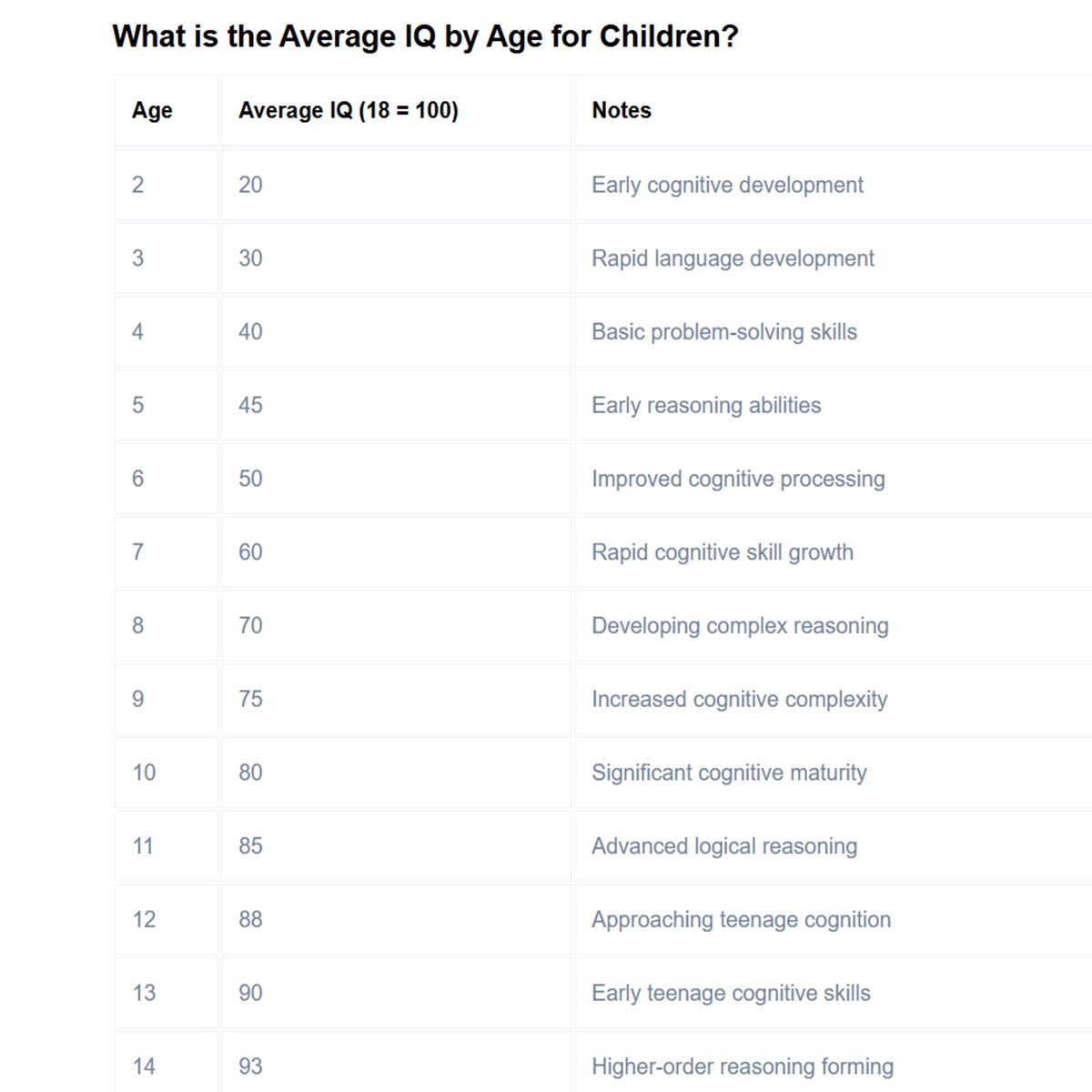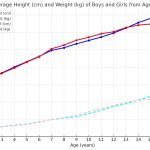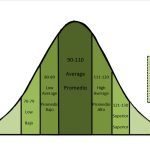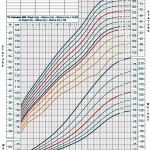What is the average IQ for a 12-year-old Boy (Girl): Average IQ by Age (10-11-12-13-14 Year Old)
Welcome! What is the average IQ by age? (For example, that of the IQ of a 12 year old boy). We answer all your questions here.
Note: Please keep in mind that while IQ tests can provide useful insights into a child’s cognitive development, they also come with several inherent issues. Factors such as cultural bias, test anxiety, socioeconomic status, and educational disparities can influence test results, making IQ scores an incomplete indicator of a child’s full intellectual potential.
We have added a detailed chart comparing average IQ scores across various ages, setting the baseline IQ of 100 at age 18:
What is the Average IQ by Age for Children?
| Age | Average IQ (18 = 100) | Notes |
|---|---|---|
| 2 | 20 | Early cognitive development |
| 3 | 30 | Rapid language development |
| 4 | 40 | Basic problem-solving skills |
| 5 | 45 | Early reasoning abilities |
| 6 | 50 | Improved cognitive processing |
| 7 | 60 | Rapid cognitive skill growth |
| 8 | 70 | Developing complex reasoning |
| 9 | 75 | Increased cognitive complexity |
| 10 | 80 | Significant cognitive maturity |
| 11 | 85 | Advanced logical reasoning |
| 12 | 88 | Approaching teenage cognition |
| 13 | 90 | Early teenage cognitive skills |
| 14 | 93 | Higher-order reasoning forming |
| 15 | 95 | Near-mature cognitive function |
| 16 | 97 | Approaching adult intelligence |
| 17 | 99 | Nearly mature cognition |
| 18 | 100 (Baseline) | Adult-level intelligence |
| 20 | 100 | Cognitive peak |
| 25 | 100 | Stable cognitive performance |
| 30 | 100 | Stable cognitive function |
| 35 | 100 | Peak cognitive efficiency |
| 40 | 99 | Minor changes begin |
| 45 | 98 | Slight cognitive adjustments |
| 50 | 97 | Gradual cognitive shift |
| 55 | 95 | Noticeable memory changes |
| 60 | 93 | Decreased processing speed |
| 65 | 90 | Cognitive speed declining |
| 70 | 87 | Continued slight decline |
| 75 | 84 | Memory and fluid intelligence decline |
| 80 | 80 | Noticeable cognitive decline |
| 85 | 75 | Increased cognitive decline |
| 90 | 70 | Significant cognitive decline |
This chart demonstrates relative cognitive development and decline across different ages compared to an 18-year-old baseline IQ of 100.
Cognitive Abilities and Aging
While overall IQ remains stable, specific cognitive skills can vary significantly across different stages of life:
- Young adulthood (18–35 years): Peak cognitive performance in fluid intelligence (reasoning, problem-solving).
- Middle adulthood (36–55 years): Accumulation of knowledge (crystallized intelligence) typically continues to grow.
- Older adulthood (56+ years): Some declines may occur in processing speed and memory, but crystallized intelligence often remains stable or improves due to accumulated knowledge and experience.
These changes reflect natural variations in cognitive abilities across the lifespan, influenced by education, occupation, health, and lifestyle rather than significant shifts in the standardized IQ score itself.
Cognitive Development Across the Lifespan
Cognitive performance typically increases from childhood into early adulthood, stabilizing around early adulthood (mid-20s to mid-30s). Intelligence in later adulthood often benefits from accumulated knowledge and experience, despite potential declines in processing speed or memory in advanced age. Cognitive abilities reflect a combination of innate potential and environmental influences like education, socioeconomic status, health, and lifestyle.
Global IQ Statistics and Disparities
Global Average IQ
The global average IQ is estimated to be around 89, based on international studies. However, significant variations exist, largely influenced by socioeconomic factors, educational standards, healthcare access, and nutrition.
| Country | Average IQ | Notes |
| Japan | ~106 | Strong educational infrastructure |
| Hong Kong | ~106 | Emphasis on rigorous education |
| United States | ~98 | Slightly below standardized mean |
| China | ~104 | Significant educational efforts |
| Botswana | ~70 | Challenges in educational access |
| Nepal | ~78 | Improved estimates in recent data |
Factors contributing to these variations include:
- Education: Quality education directly correlates with higher IQ scores.
- Socioeconomic Status: Economic stability enhances cognitive development opportunities.
- Healthcare: Adequate healthcare ensures optimal cognitive and physical development.
- Nutrition: Adequate nutrition during formative years supports optimal brain development.
Diving into US IQ Averages
What is the Average IQ in USA (United States)?
The average IQ in the United States is about 98, slightly below the global standardized mean of 100. This average reflects disparities influenced by education, socioeconomic factors, and regional differences.
State-wise IQ Comparison
States with robust educational systems typically exhibit higher average IQ scores:
- Massachusetts (~104)
- New Hampshire (~104)
- Vermont (~103)
States with better-funded education systems and higher socioeconomic status usually demonstrate higher IQ averages.
Influence of Education on IQ Scores
Education significantly impacts IQ scores. Higher-quality education promotes cognitive development and contributes to higher IQ scores, explaining variations among different states and regions within the U.S.
IQ Classifications Beyond Averages
Examples of High IQ Classifications
IQ classifications illustrate varying cognitive capabilities:
| IQ Score Range | Classification | Population Percentage |
| 130+ | Very Superior | ~2% |
| 120–129 | Superior | ~7% |
| 110–119 | High Average | ~16% |
| 90–109 | Average | ~50% |
| 80–89 | Low Average | ~16% |
| 70–79 | Borderline | ~7% |
| Below 70 | Extremely Low | ~2% |
Mensa, a society for high-IQ individuals, typically requires an IQ in the top 2% (around 132 or higher).
Gender Differences in IQ Scores
Average IQ scores exhibit minimal differences between genders. Both men and women have average IQs centered around 100, with minor variations typically influenced by environmental factors, education, and socioeconomic status. The overall distribution of IQ scores is nearly identical for both genders, emphasizing cognitive equality.
IQ and Life Success
While IQ scores correlate strongly with academic success, they do not singularly predict life success. Intelligence is multifaceted, including emotional intelligence, creativity, resilience, and social skills.
Limitations of IQ as a Predictor
IQ is predictive of academic achievement but has limitations in forecasting success in areas requiring creativity, emotional intelligence, interpersonal skills, and resilience. Successful individuals in business, arts, and entrepreneurship often excel beyond what standardized IQ tests measure.
Factors Influencing Success Beyond IQ
Life success involves several interrelated factors:
| Factor | Influence on Success | Examples |
| IQ | Academic and analytical success | Higher IQ correlates with better academic outcomes |
| Emotional Intelligence | Social and interpersonal success | Better relationships and emotional stability |
| Socioeconomic Status | Opportunity and resource access | Enhanced educational and career opportunities |
| Health and Nutrition | Cognitive and physical performance | Supports overall productivity and learning capacity |
In conclusion, while IQ is a valuable tool for assessing cognitive ability, it is essential to recognize its limitations and consider broader factors when evaluating individual potential and predicting overall life success.
Frequently Asked Questions (FAQs) about IQ Scores.
What is a good IQ score?
IQ scores between 90 and 109 indicate average intelligence. The standard average IQ is set at 100. Here’s a detailed breakdown:
| IQ Score Range | Classification |
|---|---|
| Above 140 | Genius or nearly genius |
| 120–140 | Superintelligence or gifted |
| 110–119 | Superior or above-average intelligence |
| 90–109 | Average intelligence |
| 80–89 | Lower average or dullness |
| Below 70 | Intellectual disability or “feeble-minded” |
Only about 2% of the population scores above 130, placing them in the gifted or genius category. Historical geniuses like Albert Einstein, Stephen Hawking, and Ada Lovelace are estimated to have had IQs around 160.
Is an IQ of 120 good?
Yes, an IQ score of 120 is considered very good. It indicates superior or above-average intelligence, placing you in roughly the top 10% of the population.
Can I train for an IQ test?
You cannot significantly change your innate intelligence, but you can improve your IQ test performance through practice. Engaging regularly in problem-solving exercises, puzzles, brain-training games, and learning new skills or languages can enhance cognitive functioning and potentially improve your test results.
What’s the difference between aptitude tests and IQ tests?
Aptitude tests:
- Measure specific skills or abilities.
- Do not factor age into scoring.
- Provide scores for individual skill categories.
- Primarily used for job selection or skill assessment.
IQ tests:
- Measure general cognitive ability and intellectual potential.
- Scores are adjusted by age.
- Provide a single general intelligence score.
- Commonly used for educational placement, psychological assessments, and research.
Is there an IQ difference between men and women?
Research shows no significant difference in average IQ scores between men and women. Both genders average around 100, though more men are found at both extreme high and low ends of the IQ distribution. Historical assumptions about intelligence based on gender or brain size have been disproven by scientific studies.
Does average IQ change over time?
An individual’s IQ remains relatively stable throughout adulthood. However, cognitive abilities such as memory or processing speed can vary. On a population level, average IQ scores have increased over decades—a phenomenon known as the Flynn Effect—attributed to improvements in education, health, and access to information.
Is average IQ different by country?
Yes, average IQ scores differ across countries, typically influenced by educational quality, health standards, socioeconomic conditions, and nutrition. Countries like Japan, Taiwan, and Singapore have higher average IQ scores (around 106), while less developed countries tend to have lower averages. The United States has an average IQ of around 98.
What IQ score indicates intellectual disability?
According to the Diagnostic and Statistical Manual of Mental Disorders (DSM):
- IQ 71–84: Borderline intellectual functioning
- IQ 50–70: Mild intellectual disability
- IQ 35–49: Moderate intellectual disability
- IQ 20–34: Severe intellectual disability
- Below IQ 20: Profound intellectual disability
How can someone improve their IQ score?
While innate intelligence is largely fixed, you can boost your IQ test performance by:
- Learning new skills (e.g., music, languages)
- Regularly solving puzzles and playing brain-training games
- Reading extensively and continuously acquiring knowledge
- Enhancing verbal and logical reasoning skills
- Maintaining a healthy lifestyle with nutritious food, exercise, and sufficient rest
What is the Average IQ by Age for Children:
As you can see on this chart, the average IQ for kids will have to be measured against a baseline age, here 18.









